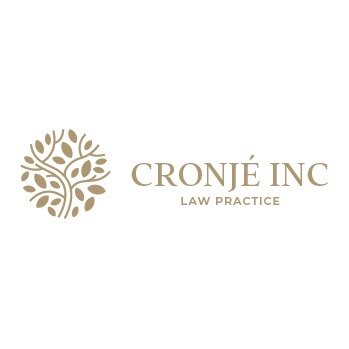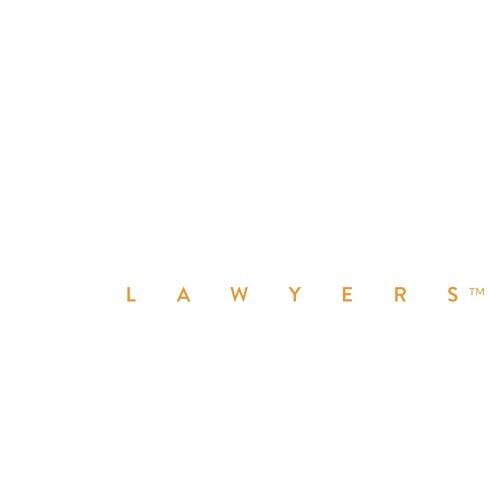Best New Business Formation Lawyers in Windhoek
Share your needs with us, get contacted by law firms.
Free. Takes 2 min.
List of the best lawyers in Windhoek, Namibia
About New Business Formation Law in Windhoek, Namibia
New business formation in Windhoek, Namibia is an exciting venture, but it comes with a set of legal requirements that must be carefully observed to ensure compliance and operational success. Windhoek, being the capital and largest city in Namibia, serves as a hub for business activities, attracting entrepreneurs and investors from around the globe. The legal framework in Namibia is designed to foster growth while ensuring fair competition and consumer protection. Navigating this landscape requires an understanding of corporate, tax, labor, and environmental laws relevant to the Namibian context.
Why You May Need a Lawyer
Starting a new business involves various legal complexities that may necessitate the expertise of a lawyer. Common situations where legal assistance may be required include:
- Choosing the right business structure (e.g., sole proprietorship, partnership, or company).
- Understanding and complying with registration requirements and procedures.
- Drafting and reviewing contracts and agreements with suppliers, clients, and employees.
- Navigating permits and licenses needed for specific industries.
- Ensuring compliance with local and national labor laws.
- Protecting intellectual property through trademarks or patents.
- Handling disputes, litigation, and negotiations with various stakeholders.
Local Laws Overview
The legal framework for new businesses in Windhoek, Namibia encompasses several key components:
- Business Registration: Registering with the Business and Intellectual Property Authority (BIPA) is mandatory. The process includes selecting a business name and structure.
- Taxation: Understanding the tax obligations specific to your business type, such as income tax, VAT, and provisional tax payments.
- Employment Laws: The Labour Act of 2007 oversees employment contracts, worker's rights, and employer obligations, which must be adhered to.
- Licensing and Permits: Certain businesses require special permits or licenses depending on their industry, such as health or construction.
- Intellectual Property: Protecting company brands and inventions through BIPA's trademark and patent registration services.
- Environmental Regulations: Businesses must comply with environmental laws and obtain necessary consents from agencies like the Ministry of Environment.
Frequently Asked Questions
1. What is the process to register a new business in Windhoek?
Registration involves selecting a business name, choosing a business structure, and applying through BIPA. You need to submit forms and pay a fee to complete the registration.
2. What types of business structures are available?
Namibia offers sole proprietorship, partnership, close corporation, and company (public or private) as common structures, each with different legal implications.
3. How long does it take to register a new business?
The duration can vary, but once you have all the required documents, the process typically takes 5-10 working days.
4. What taxes are applicable to new businesses?
Businesses must register for income tax. Depending on the type, businesses may also be obligated to register for VAT and PAYE.
5. Are there any incentives for new businesses?
The Namibian government offers various incentives, including tax breaks and grants, especially to sectors identified as growth priorities.
6. What permits do I need to start a café in Windhoek?
You'll need a health inspection clearance, municipal business license, and potentially a liquor license if you plan to serve alcohol.
7. Do I need a lawyer to start a business?
While not mandatory, a lawyer provides invaluable guidance in understanding complex legal requirements and ensuring compliance from the outset.
8. Can foreigners start a business in Namibia?
Yes, foreigners can start businesses in Namibia, but they may face additional requirements, such as investment thresholds or local ownership regulations.
9. What is the role of BIPA?
BIPA facilitates business registrations, and regulates intellectual property matters, such as trademarks, patents, and designs.
10. How do I protect my brand in Namibia?
Registering a trademark with BIPA is the primary way to protect your brand, providing legal protection against unauthorized use.
Additional Resources
For further assistance, consider reaching out to the following resources:
- Business and Intellectual Property Authority (BIPA): Offers comprehensive services for business registration and intellectual property rights.
- Ministry of Industrialization, Trade and SME Development: Provides guidance and support for SMEs and industry regulations.
- Namibia Investment Centre: Assists with information on investment opportunities and procedures.
- Namibian Employers' Federation: Offers advice on employment issues and labor laws.
- Local Chambers of Commerce: These organizations can provide networking and advocacy support for new businesses.
Next Steps
If you need legal assistance in new business formation, consider the following steps:
- Research and identify local business lawyers with expertise in your specific industry.
- Schedule consultations to discuss your business goals and legal needs.
- Prepare a list of questions regarding your business plans and legal requirements.
- Engage a lawyer who is well-versed in Namibian business law to guide you through the complexities and streamline your establishment process.
Taking prompt legal advice can save you from potential pitfalls and ensure a smooth start to your business venture in Windhoek, Namibia.
Lawzana helps you find the best lawyers and law firms in Windhoek through a curated and pre-screened list of qualified legal professionals. Our platform offers rankings and detailed profiles of attorneys and law firms, allowing you to compare based on practice areas, including New Business Formation, experience, and client feedback.
Each profile includes a description of the firm's areas of practice, client reviews, team members and partners, year of establishment, spoken languages, office locations, contact information, social media presence, and any published articles or resources. Most firms on our platform speak English and are experienced in both local and international legal matters.
Get a quote from top-rated law firms in Windhoek, Namibia — quickly, securely, and without unnecessary hassle.
Disclaimer:
The information provided on this page is for general informational purposes only and does not constitute legal advice. While we strive to ensure the accuracy and relevance of the content, legal information may change over time, and interpretations of the law can vary. You should always consult with a qualified legal professional for advice specific to your situation.
We disclaim all liability for actions taken or not taken based on the content of this page. If you believe any information is incorrect or outdated, please contact us, and we will review and update it where appropriate.
















